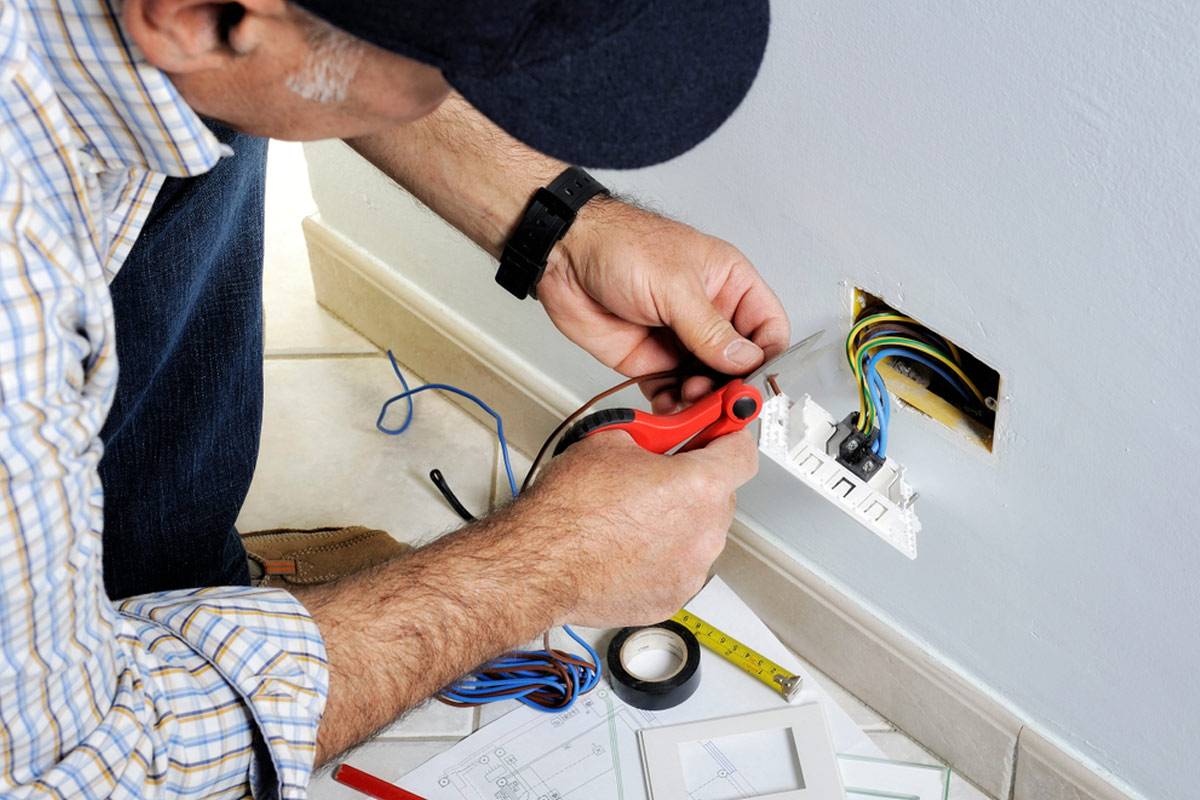How to Repair Electricity at Home
Electricity is an important aspect of our daily lives. We rely on it to power our homes, appliances, and gadgets. However, electrical problems can occur from time to time, and it is crucial to know how to deal with them. In this article, we will provide you with a step-by-step guide on how to repair electricity at home.

Before You Begin
Before you start repairing your electrical system, there are some precautions you need to take. First, turn off the power supply to the affected area. You can do this by switching off the circuit breaker or unplugging the appliance. Secondly, never attempt to repair electrical systems if you are not experienced or qualified. It is better to call a professional electrician to avoid accidents or further damage to your electrical system.
Tools You Will Need
Here are some of the tools you will need to repair your electrical system:
- Screwdrivers
- Wire strippers
- Wire cutters
- Electrical tape
- Multimeter
Identifying the Problem
The first step in repairing your electrical system is to identify the problem. Some common electrical problems include:
- Flickering lights
- Circuit breaker tripping
- Electrical shocks
- Overloaded circuits
Flickering Lights
If your lights are flickering, it could be due to a loose bulb, faulty wiring, or a problem with the fixture. To fix this problem, try replacing the bulb or tightening the fixture. If this doesn't work, you may need to call an electrician to check the wiring.
Circuit Breaker Tripping
If your circuit breaker keeps tripping, it could be due to an overloaded circuit or a faulty breaker. To fix this problem, try unplugging some of the appliances on the circuit or resetting the breaker. If the problem persists, call an electrician to replace the breaker or upgrade your electrical system.
Electrical Shocks
If you are experiencing electrical shocks, it could be due to a faulty appliance or wiring. To fix this problem, turn off the power supply and unplug the appliance. If the shocks persist, call an electrician to check the wiring.
Overloaded Circuits
If your circuits are overloaded, it could be due to too many appliances being used at once. To fix this problem, unplug some of the appliances or upgrade your electrical system.
Repairing the Electrical System
Once you have identified the problem, you can now start repairing your electrical system. Here are some steps to follow:
- Turn off the power supply to the affected area.
- Remove the cover of the electrical outlet or fixture.
- Check the wiring for any damage or loose connections.
- If there is damage, cut the damaged wire and strip the ends.
- Connect the wires using wire connectors and wrap them with electrical tape.
- Replace the cover and turn on the power supply.
- Test the electrical system to ensure it is working correctly.
Pros and Cons of Repairing Electrical Systems at Home
Here are some pros and cons of repairing electrical systems at home:
| Pros | Cons |
|---|---|
| Save money on repair costs | Can be dangerous if not done correctly |
| Learn a new skill | May not be able to diagnose complex problems |
| Can fix simple problems quickly | May cause further damage to the electrical system |
Conclusion
Repairing electrical systems at home can be a cost-effective way to fix simple problems. However, it is essential to take precautions and consult a professional electrician for complex issues. We hope this guide has provided you with valuable information on how to repair electricity at home safely and efficiently.
FAQs
Q1. Can I repair my electrical system without turning off the power?
No, it is crucial to turn off the power supply before repairing your electrical system to avoid accidents or further damage to the system.
Q2. What should I do if I am not experienced in repairing electrical systems?
If you are not experienced in repairing electrical systems, it is better to call a professional electrician to avoid accidents or further damage to your electrical system.
Q3. How can I prevent electrical problems in my home?
You can prevent electrical problems in your home by using high-quality appliances, avoiding overloading circuits, and regularly inspecting your electrical system.
Q4. What should I do if I experience an electrical shock?
If you experience an electrical shock, turn off the power supply and unplug the appliance. If the shocks persist, call an electrician to check the wiring.
